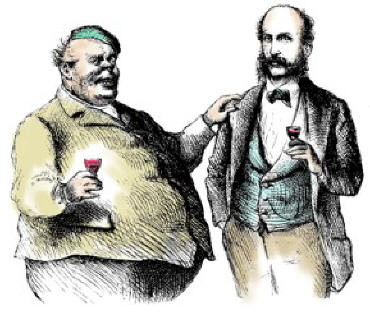Tim James: On what constitutes a wine expert
By Christian Eedes, 16 February 2015
 The piece I wrote a week ago on Arendsig (and incidentally Robertson) received plenty of comment, some of it evidencing at least a bit of irritation. Which is fine; I’d realised it was going to be a controversial piece in part. But the responses did make me think more, as I hope all those who offer their opinions in public sometimes do, about the question of “expertise”.
The piece I wrote a week ago on Arendsig (and incidentally Robertson) received plenty of comment, some of it evidencing at least a bit of irritation. Which is fine; I’d realised it was going to be a controversial piece in part. But the responses did make me think more, as I hope all those who offer their opinions in public sometimes do, about the question of “expertise”.
Am I a wine expert? I have some “qualifications”, but don’t recall ever claiming to be so, and readily admit doubts as to the certainty of claims about wine quality, etc – while reserving the right to have strong opinions!
In the day of the Internet, when anyone can voice opinions publicly, it is more than ever up to the reader to decide what and who is worth bothering with. The winelover decides on this in various ways, essentially depending on the critic offering information and opinions of perceived value.
I always hope that people discern my wine aesthetic, and particular attitudes that they might find useful. Similarly, some realise that if I dislike a particular wine for given reasons there’s reason to suppose they will like it! That approach applies to me, certainly: if critic A praises a wine for its rich fruitiness, power, and gobs of jammy flavour, I am doubtful, and more interested in the wine sneered at for being herbal and austere. And if a wine is dismissed, tout court, simply for evidence of brettanomyces for example – well, I happily reserve judgement.
Even more than intelligent wine writers, that is to say, there’s a need for intelligent and discerning readers, wine drinkers, wine lovers. If the general reader can criticise us, we should also be able to decide which readers and commenters to pay attention to.
This is one response to those who point out that everyone, including those with greater or lesser claim to expertise, is subjective in their judgements.
But there’s more to say. I believe that some people have earned a right to have their subjectivity valued, primarily because it is educated, consistent and considered. Again, though, we decide on whom to value in an equally subjective way: critic A seems to dismiss the sort of wines I like, so I’ll pay more attention to critic B, whose tastes are more in line with mine.
This is not to dispute the point that people who offer themselves to the world as wine judges should strive after objectivity as much as possible. I really believe this, and that a professional (in the best sense of that term) should be able to abstractly appreciate qualities that he or she doesn’t always enjoy.
But please remember that objectivity is not at all the same as neutrality – a very dubious virtue in my opinion. A few years back, a winery I respect lodged an objection to me as designated Platter taster, claiming I was not predisposed to enjoy their style. I thought that entirely justified. A personal taste is inevitably relevant, and can make a difference, even when one is bending over backwards to be fair.
I recognise five things giving a critic some sort of right to make pronouncements. 1. Independence from commercial involvement (remarkably rare!). 2. Honesty (always rare!). 3. A genuine attempt to appreciate all styles of wine. 4. Long experience and/or useful training. 5. Wide acquaintance with wine: those who get around a lot, attend many tastings, visit a lot of wineries, discuss and think about wines and pay particular attention to the task, should be able to offer opinions of some value to others.
- Tim James is founder of Grape.co.za and contributes to various local and international wine publications. He is a taster (and associate editor) for Platter’s. His book Wines of South Africa – Tradition and Revolution appeared in 2013.








Comments
0 comment(s)
Please read our Comments Policy here.